May 20, 2022 | Nora Samaranayake

University of Maryland School of Medicine (UMSOM)’s Institute of Human Virology (IHV) researchers received funding from the National Institutes of Health’s National Institute of Allergy and Infectious Diseases (NIAID) for $2.7 million to study genetic changes in two genes from the HIV-1 virus that may make it resistant to antiretroviral therapy. The study, named INSPIRE, will analyze genetic variation in types of HIV circulating in a handful of African countries that will help to better understand the implications of these mutations and will improve clinical management of patients.
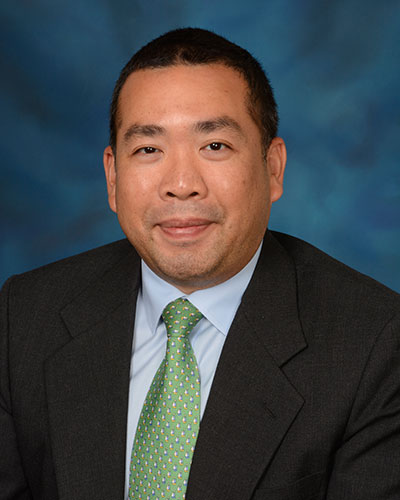 The HIV virus weakens the immune system when untreated, so the body cannot fight infections. Once a person tests positive for the virus, a health care provider prescribes an antiretroviral drug regimen that keeps the virus in check. However, if the patient does not tolerate the side effects, does not consistently take their medication, or if the virus no longer responds to the treatment, then the patient is switched to a second-line regimen with a different combination of drugs.
The HIV virus weakens the immune system when untreated, so the body cannot fight infections. Once a person tests positive for the virus, a health care provider prescribes an antiretroviral drug regimen that keeps the virus in check. However, if the patient does not tolerate the side effects, does not consistently take their medication, or if the virus no longer responds to the treatment, then the patient is switched to a second-line regimen with a different combination of drugs.
“Our study’s goal is to identify factors that predict when certain drugs found in the second-line regimens no longer suppress HIV infection and help guide third-line antiretroviral therapy strategies for resource-limited settings. This will be particularly important, as those people that do not respond to second-line regimens are at an increased risk for developing resistance to another drug in the third-line treatment regimen,” said one of the study principal investigators Man Charurat, PhD, MHS, Professor of Medicine at UMSOM and Director of the Center for International Health, Education, and Biosecurity (Ciheb) in the UMSOM’s Institute of Human Virology. Third-line drug regimens tend to be more expensive, have not been tested as extensively in children and pregnant women, so these medications are less condusive for use in lower income countries.
 Along with Dr. Charurat, Nicaise Ndembi, McS, PhD, Adjunct Associate Professor of Medicine at UMSOM and Scientist in the UMSOM’s Institute of Human Virology, will serve as the other principal investigator on the study. Dr. Ndembi also serves as the Chief Science Advisor at the Africa Centers for Disease Control and Prevention (Africa CDC).
Along with Dr. Charurat, Nicaise Ndembi, McS, PhD, Adjunct Associate Professor of Medicine at UMSOM and Scientist in the UMSOM’s Institute of Human Virology, will serve as the other principal investigator on the study. Dr. Ndembi also serves as the Chief Science Advisor at the Africa Centers for Disease Control and Prevention (Africa CDC).
Based on earlier findings by Dr. Ndembi, the researchers hypothesized that genetic sequences in the HIV genes env and gag could contain compensatory mutations that could evade antiretroviral treatment.
“Our studies demonstrated the first instance of new Env mutations conferring resistance to dolutegravir naturally in human cell lines in the laboratory. Our findings likely mean that these kinds of mutations may already be occurring outside of the laboratory in patient populations,” said Dr. Ndembi. Dolutegravir is a class of drug known as an integrase inhibitor that prevents HIV from inserting itself into a person’s DNA, which it needs to do in order to make more copies of itself. “We attribute the decreased effectiveness of the drug to the ability of the Env mutants to mediate highly efficient cell-to-cell transmission, increasing the multiplicity of infection” said Dr. Ndembi.
The env gene encodes the Env protein that helps HIV bind to and infect human cells. The thought is that new mutations could potentially make the Env protein more effective at doing its job binding and infecting making the virus more infectious.
A class of drugs in the second-line regimen that HIV develops resistance to is known as the protease inhibitors. These drugs stop HIV proteases from working, which have the job of cutting other HIV proteins as a final step in their production. The researchers theorize that mutations in the gag gene may be what leads to the drug resistance. The gag gene encodes the Gag protein, which is snipped by the protein cutter protease. Exactly how the gene mutations select for drug resistance though, is unknown.
The study participants will be composed of people from the AFRICOS study, which is part of the U.S. President’s Emergency Plan for AIDS Relief (PEPFAR), and the PASER study. The AFRICOS study enrolled 4,200 people, including 3,500 with HIV from sites in Kenya, Nigeria, Tanzania, and Uganda. The PASER study enrolled just over 3,000 participants with HIV/AIDS with the goal of tracking treatment resistance in patients from sites in Kenya, Nigeria, South Africa, Uganda, Zambia and Zimbabwe.
Dr. Charurat and Dr. Ndembi will work alongside researchers from the Amsterdam Institute for Global Health and Development – Amsterdam (AIGHD), U.S. NIH’s National Cancer Institute, Stanford University, U.S. Military HIV Research Program (MHRP) via the Henry M. Jackson Foundation, and University of Cambridge – United Kingdom.
 “Decades of research have provided life-saving treatment to a virus once thought of as a death sentence,” said E. Albert Reece, MD, PhD, MBA, Executive Vice President for Medical Affairs, UM, Baltimore, the John Z. and Akiko K. Bowers Distinguished Professor and Dean at the University of Maryland School of Medicine. “It is essential that we ensure that this virus remains treatable by staying on top of HIV’s mutation rate and responding with new combinations of medications if necessary.”
“Decades of research have provided life-saving treatment to a virus once thought of as a death sentence,” said E. Albert Reece, MD, PhD, MBA, Executive Vice President for Medical Affairs, UM, Baltimore, the John Z. and Akiko K. Bowers Distinguished Professor and Dean at the University of Maryland School of Medicine. “It is essential that we ensure that this virus remains treatable by staying on top of HIV’s mutation rate and responding with new combinations of medications if necessary.”
Almost 38 million people around the world live with HIV with about 75% of these people managing the disease with antiretroviral therapy, according to the U.S. Department of Health and Human Services.
About the Institute of Human Virology
Formed in 1996 as a partnership between the State of Maryland, the City of Baltimore, the University System of Maryland, and the University of Maryland Medical System, the IHV is an institute of the University of Maryland School of Medicine and is home to some of the most globally-recognized and world-renowned experts in all of virology. The IHV combines the disciplines of basic research, epidemiology, and clinical research in a concerted effort to speed the discovery of diagnostics and therapeutics for a wide variety of chronic and deadly viral and immune disorders, most notably HIV, the virus that causes AIDS. For more information, visit ihv.org and follow us on Twitter @IHVmaryland.
About the University of Maryland School of Medicine
Now in its third century, the University of Maryland School of Medicine was chartered in 1807 as the first public medical school in the United States. It continues today as one of the fastest growing, top-tier biomedical research enterprises in the world -- with 46 academic departments, centers, institutes, and programs, and a faculty of more than 3,000 physicians, scientists, and allied health professionals, including members of the National Academy of Medicine and the National Academy of Sciences, and a distinguished two-time winner of the Albert E. Lasker Award in Medical Research. With an operating budget of more than $1.3 billion, the School of Medicine works closely in partnership with the University of Maryland Medical Center and Medical System to provide research-intensive, academic and clinically based care for nearly 2 million patients each year. The School of Medicine has nearly $600 million in extramural funding, with most of its academic departments highly ranked among all medical schools in the nation in research funding. As one of the seven professional schools that make up the University of Maryland, Baltimore campus, the School of Medicine has a total population of nearly 9,000 faculty and staff, including 2,500 students, trainees, residents, and fellows. The combined School of Medicine and Medical System (“University of Maryland Medicine”) has an annual budget of over $6 billion and an economic impact of nearly $20 billion on the state and local community. The School of Medicine, which ranks as the 8th highest among public medical schools in research productivity (according to the Association of American Medical Colleges profile) is an innovator in translational medicine, with 606 active patents and 52 start-up companies. In the latest U.S. News & World Report ranking of the Best Medical Schools, published in 2021, the UM School of Medicine is ranked #9 among the 92 public medical schools in the U.S., and in the top 15 percent (#27) of all 192 public and private U.S. medical schools. The School of Medicine works locally, nationally, and globally, with research and treatment facilities in 36 countries around the world. Visit medschool.umaryland.edu
Contact
Institute of Human Virology
Nora Samaranayake
Chief Communications & Public Affairs Officer
(443) 823-0613 (phone)
(410) 706-1952 (fax)
nsamaranayake@ihv.umaryland.edu
Related stories
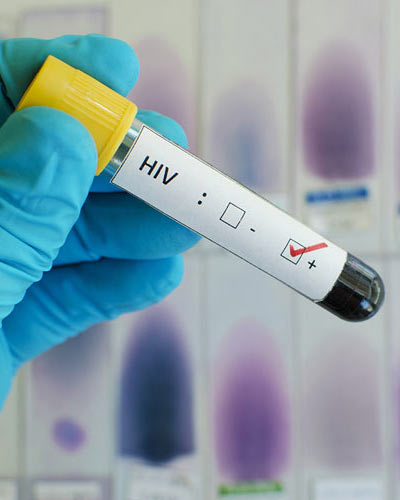
Monday, November 24, 2025
New Study Identifies Key Mechanism Driving HIV-Associated Immune Suppression
Researchers from the Institute of Human Virology (IHV) at the University of Maryland School of Medicine have discovered how a specific type of immune cell may contribute to the persistence of HIV infections. The finding offers new insight into why the virus remains difficult to cure even with effective antiretroviral therapy.
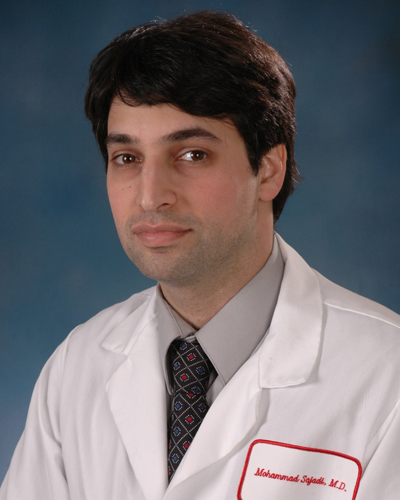
Wednesday, March 20, 2024
New Study Reveals Insights into Lack of Durability in COVID Antibody Response to Infections & Vaccines
Researchers at the Institute of Human Virology (IHV) at the University of Maryland School of Medicine published a new study in the Journal of Infectious Diseases investigating the short-lived antibody response following SARS-CoV-2, the virus that causes COVID.
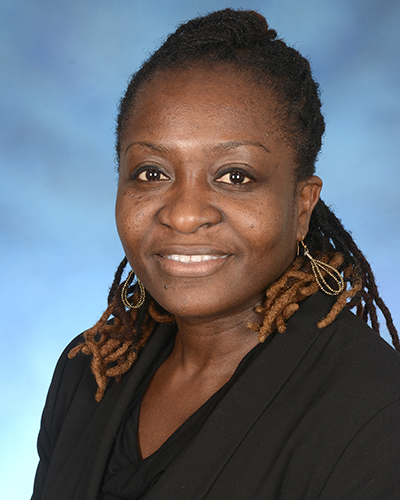
Tuesday, July 19, 2022
Six-Country African Study Shows COVID-19 Can Be Dangerous in Pregnancy
A new study involving hospitalized women in six African countries from the University of Maryland School of Medicine’s (UMSOM) Institute of Human Virology (IHV) showed that pregnant women with SARS-CoV-2, the virus that causes COVID-19, had double the risk of being admitted to the intensive care unit (ICU) and four-times the risk of dying in-hospital than pregnant women who did not have COVID-19.
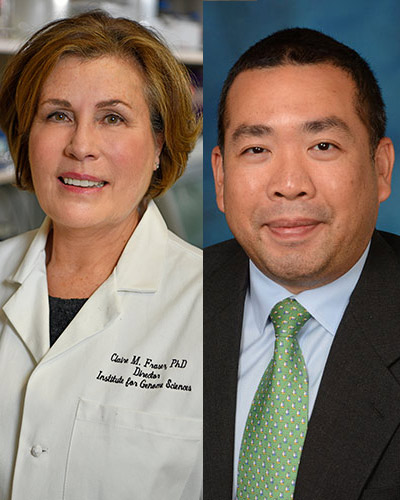
Thursday, June 23, 2022
New Research Shows Mothers’ HIV Status, Breastfeeding, and the Infant Gut Microbiome Can Have Long-Term Impact on Infant Health
Babies born to women with HIV often have poorer health and under-developed growth in the early months of life than infants born to women without the infection — even if those babies don’t contract HIV during birth, according to a new study by researchers at the University of Maryland School of Medicine (UMSOM)’s Institute for Genome Sciences (IGS) and Institute of Human Virology (IHV). The study also provides new insights into why these health issues often continue throughout the babies’ lives.

Wednesday, May 25, 2022
NIH Awards Grant to Train Global Health Scientists in Low-and-Middle-Income Countries
Researchers at the University of Maryland School of Medicine (UMSOM) received a $5.5 million award from the National Institute of Health’s Fogarty International Center to help foster the next generation of global health scientists. The award entitled, “Integrated Network of Scholars in Global Health Research Training (INSIGHT)” will expand global health research across sub-Saharan Africa, South Asia, Latin America, and the Caribbean by providing one-year mentored research training to U.S. and lower-middle income country scholars.
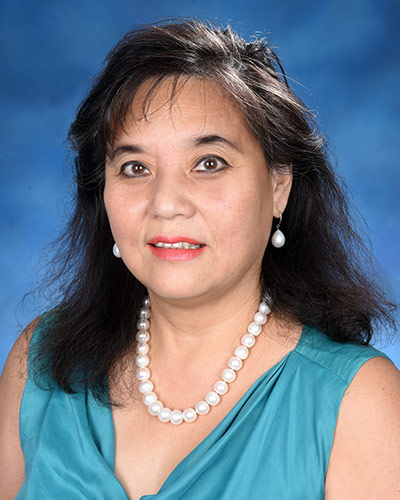
Tuesday, July 06, 2021
UM School of Medicine Researchers Receive NIH Avant-Garde Award for Out-Of-Box Concept to Cure HIV and Treat Co-Existing Addiction
Linda Chang, MD, MS, Professor of Diagnostic Radiology & Nuclear Medicine at the University of Maryland School of Medicine (UMSOM), received the National Institute on Drug Abuse (NIDA) 2021 Avant-Garde Award (DP1) for HIV/AIDS and Substance Use Disorder Research — a National Institutes of Health (NIH) Director’s Pioneer Award. This prestigious award supports researchers with exceptional creativity, who propose high-impact research with the potential to be transformative to the field.
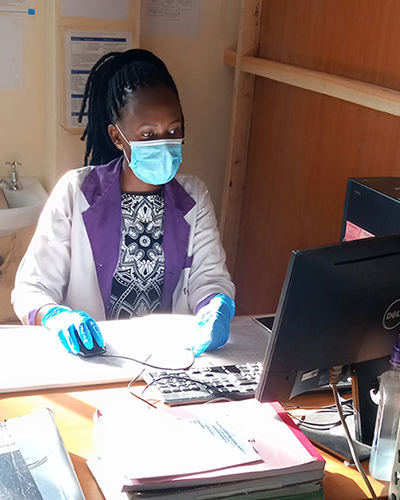
Tuesday, June 02, 2020
UM School of Medicine’s Institute of Human Virology Awarded Grants to Strengthen COVID-19 Response in Sub-Saharan Africa
The Center for International Health, Education and Biosecurity (Ciheb) at the University of Maryland School of Medicine’s Institute of Human Virology was awarded $4 million from the U.S. Centers for Disease Control and Prevention (CDC) to support coronavirus disease 2019 (COVID-19) response activities in Botswana, Nigeria, Malawi, and Mozambique.

Monday, June 24, 2019
UM School of Medicine's Institute of Human Virology Awarded $40 Million Grant to Conduct HIV Population Surveys
Man Charurat, MD, Professor of Medicine, Director, Center for International Health, Education, and Biosecurity (CIHEB), and Director, Division of Epidemiology and Prevention, Institute of Human Virology (IHV) at the University of Maryland School of Medicine (UMSOM), has been awarded a five-year grant from the U.S. Centers for Disease Control and Prevention (CDC) to conduct HIV population-based HIV impact assessments worldwide to measure the progress towards the control of the HIV epidemic
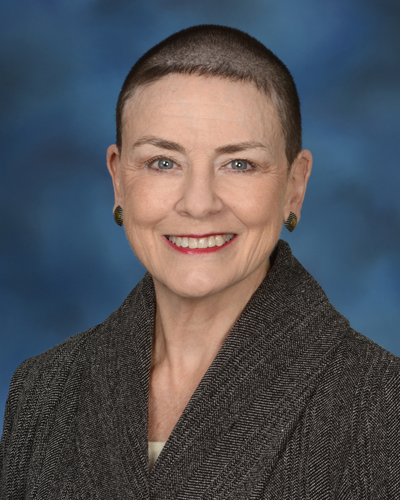
Wednesday, September 20, 2017
Institute of Human Virology Marks National Gay Men's HIV/AIDS Awareness Day on Wednesday, September 27 as HIV/AIDS Increases in Baltimore’s Youth
The proportion of newly reported HIV diagnoses among Maryland youth has tripled over 20 years. The Institute of Human Virology (IHV) at the University of Maryland School of Medicine will host an event Wednesday, September 27 to raise awareness about the rise in HIV/AIDS among Maryland’s youth ages 13-24, particularly among young black men. Of the 252 youth HIV diagnoses in 2015, 82.5 percent were male and 17.5 percent were female in Maryland while 82.1 percent of these new diagnoses were African American. The statistics are astounding considering the availability of prevention therapy.
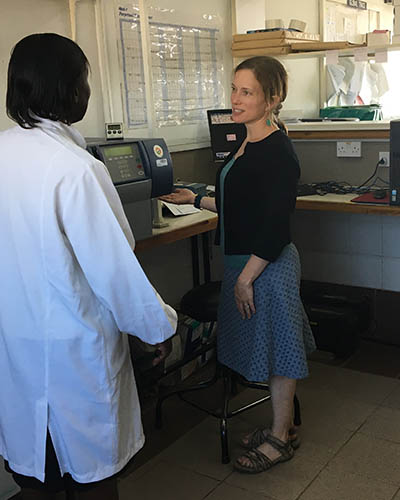
Wednesday, August 02, 2017
UM School of Medicine Receives $2 Million Grant for HIV Research in Malawi
The University of Maryland School of Medicine’s (UM SOM) Institute for Global Health (IGH) and the Institute of Human Virology (IHV) have been awarded a $2 million five-year grant from the Eunice Kennedy Shriver National Institute of Child Health and Human Development to study the impact exposure to HIV has on the immune systems of infants in utero and how those changes impact the ability of infants to fight off infections after birth.
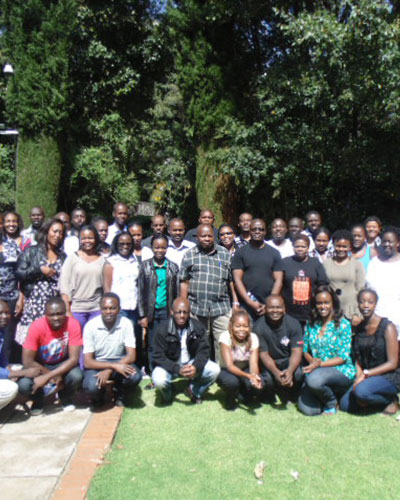
Tuesday, November 22, 2016
IHV Awarded $138M to combat HIV/AIDS in Africa & Launches Center for International Health, Education, & Biosecurity
The Institute of Human Virology (IHV) at the University of Maryland School of Medicine announced today more than $138 million in multiple five-year grants awarded by the Centers for Disease Control and Prevention to combat HIV/AIDS in Kenya, Tanzania, Zambia, and Nigeria. The Institute concurrently announced the formation of the IHV Center for International Health, Education, & Biosecurity (CIHEB), and its newly appointed director, Deus Bazira Mubangizi, DrPH, MBA, MPH, Assistant Professor of Medicine, Director, Center for Health, Education, & Biosecurity, Institute of Human Virology, University of Maryland School of Medicine.
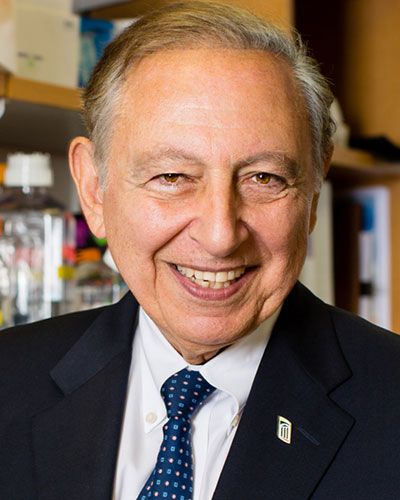
Tuesday, October 25, 2016
"A Call to End HIV/AIDS in America" IHV Director Dr. Robert Gallo's Op-Ed in the Huffington Post
As the new Administration is presented with great challenges facing the United States, one will be a longtime foe, the U.S. HIV/AIDS epidemic. Since President Barack Obama was elected in 2008, I have publicly called on our country’s leaders to utilize the largest global health initiative in history - the President’s Emergency Plan for AIDS Relief (PEPFAR) - as a model to address the U.S. epidemic.
